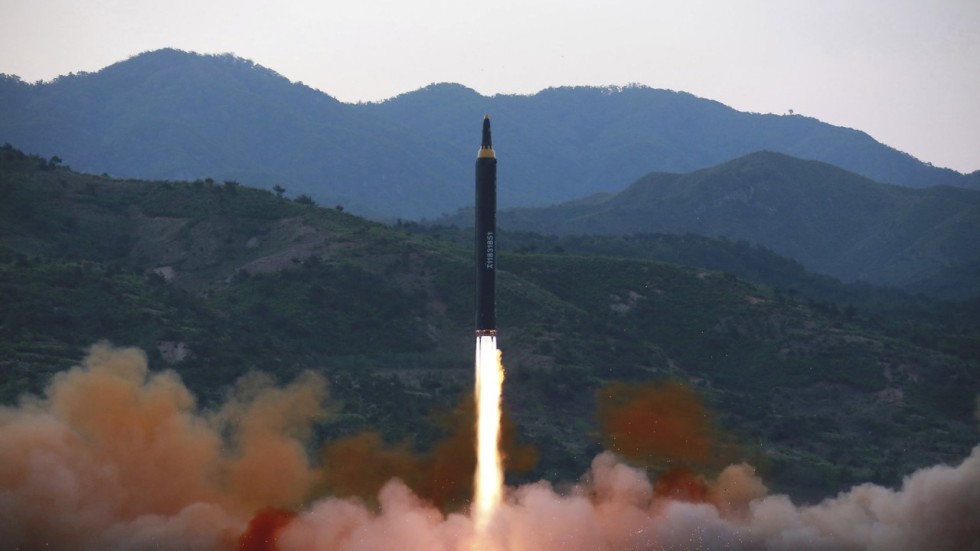PYONGYANG/UNITED NATIONS, Aug. 30 (Xinhua) -- The Democratic People's Republic of Korea (DPRK) confirmed Wednesday it test-fired a medium-range ballistic missile Tuesday to counter the on-going U.S.-South Korea joint military drills.
DPRK's top leader Kim Jong Un personally guided the launch from a military base in the capital Pyongyang, said the official Korean Central News Agency (KCNA).
"It was conducted as a part of the muscle-flexing to counter the Ulji Freedom Guardian joint military drills the U.S. and the south Korean puppet forces finally kicked off in disregard of the DPRK's meaningful and crucial warning," it said.
This was the first time for DPRK to have staged a missile test-firing from the capital itself, said the report.
"Involved in the drill were Hwasong artillery units of the KPA (Korean People's Army) Strategic Force tasked with striking the bases of the U.S. imperialist aggressor forces located in the Pacific operational theater in contingency and intermediate-range strategic ballistic rocket Hwasong-12," said the report.
The test-fire also marked the 107th anniversary of the forcible annexation of Korea by Japan in 1910.
"Officers and men of the KPA Strategic Force extended the warmest thanks to Kim Jong Un, who gave vent to the long-pent grudge of the Korean people by mapping out a bold plan to make the cruel Japanese islanders insensible on bloody Aug. 29, when the disgraceful Korea-Japan Annexation Treaty was proclaimed 107 years ago," said the report.
The missile flew about 2,700 km and reached an altitude of 550 km crossing the Japanese island of Hokkaido before hitting its targeted spot in the northern Pacific, according to earlier reports.
"The fired ballistic rocket crossed the sky above Oshima peninsula of Hokkaido and Cape Erimo of Japan along the preset flight track and accurately hit the preset target waters in northern Pacific," said the KCNA, adding it had not security impact on neighboring countries.
The drill saw a combination of sudden maneuvers and strike "for prompt counteraction in contingency on the Korean peninsula," said the KCNA.
It also proved "perfect" operational capacity of the missile force for an actual war and the combat efficiency of its medium-range missiles, according to the report.
China on Tuesday called on all parties involved in the Korean Peninsula nuclear issue to refrain from provoking each other and raising tension.
"All parties should exercise restraint and work together to maintain peace and stability on the Peninsula," said Foreign Ministry spokesperson Hua Chunying at a daily press briefing.
"I suggest all parties calmly and meticulously study the relevant resolutions by the UN Security Council," she said, explaining that the resolutions consist of at least two parts: to curb the nuclear and missile development by the DPRK, and to resume the Six-Party Talks.
U.S. ambassador to the United Nations Nikki Haley on Tuesday condemned DPRK's missile launch and threatened that "something serious has to happen."
The United States, together with Japan and South Korea, has called for an emergency UN Security Council meeting for Tuesday afternoon on the DPRK issue. "We are talking about what else is left to do with North Korea (DPRK)," Haley told reporters at UN Headquarters in New York.
"What happened yesterday was absolutely unacceptable and irresponsible," she said. "No country should have missiles flying over them."
She expressed the hope that China and Russia would work with the United Sates as they have done in the past.
Jonathan Allen, Britain's deputy permanent representative to the United Nations, also condemned DPRK's missile launch.
